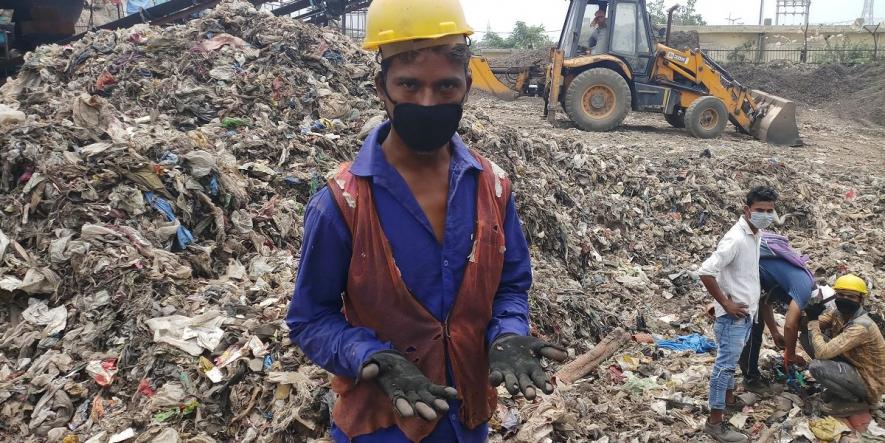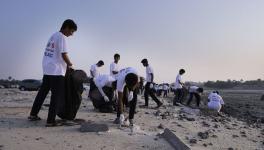Sanitation Workers Without Protection Amid Pandemic

Image Courtesy: The Wire
Seven sanitation workers had tested positive for Covid-19 in Vijayawada about seven days ago. All of them who are below 50 years of age contracted the virus while at work. On May 24, a 58-year-old sanitation supervisor at All India Institute of Medical Sciences (AIIMS) in New Delhi had died of Covid-19. Apart from this, about 50 sanitation workers from AIIMS have tested positive.
These piling cases point to the apathy of the authorities and ineffective and inadequate personal protection measures. Along with their regular tasks which can include sewer cleaning and waste management, sanitisation workers now have to go for fogging and spraying of disinfectant in containment zones.
“Our workload and working hours have increased during the lockdown. Though the government had made many promises about our safety and wages, nothing has been done so far,” said Sundharam of Senkodi Sangam, a union of sanitisation workers working for Greater Chennai Corporation.
Read more: Bihar: Maize Growers Launch Satyagraha, Demand MSP for Crop
Sundharam added that they have been given only facemasks and those too are insufficient.
Many reports from across the country have noted that most sanitation workers do not have access to any kind of safety measure. Manual scavenging continues to be practised even in the national capital. Centre of Indian Trade Unions (CITU) had sent a letter to the chief minister of Delhi, deputy governor and municipal corporation. The letter referred to a June 12 incident where some sweepers were seen cleaning a lane in Krishna Nagar without any security gear.
CITU alleged that even during the pandemic, the sanitation workers are being forced to enter manholes and demanded that this be stopped immediately, and ‘dignified’ jobs be provided to them. The workers engaging in manual scavenging come in direct contact with human faeces without any protective gear. Every year, many workers lose their lives after inhaling toxic gases while working inside the sewers.
According to experts, there are two main reasons for deaths of manual scavengers: lack of modern machines for cleaning and contractualisation of workers. Since it is contractual work, governments do not pay proper attention to the interests of manual scavengers. The workers, unions, and activists have long been demanding end of the contractual practice.
Though manual scavenging has been banned in the country by law, National Safai Karamchari Commission data says that one person has died every five days on average since 2017, during the cleaning of sewers and septic tanks.
The government, however, has been accused of underestimating the number of manual scavengers time and again. Many cases of deaths in remote areas are not even reported at all. According to National Safai Karamcharis Commission's data, the number of people who died during sewer-septic tank cleaning in the last three years (2017-2019) is 271. Of these, 110 deaths have occurred in 2019 only.
Read more: “Aspirants of Fascism Use Crises to Make Their Power Absolute”
Get the latest reports & analysis with people's perspective on Protests, movements & deep analytical videos, discussions of the current affairs in your Telegram app. Subscribe to NewsClick's Telegram channel & get Real-Time updates on stories, as they get published on our website.
























